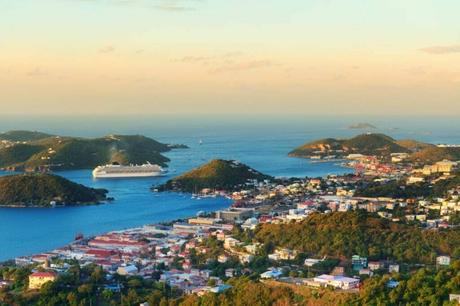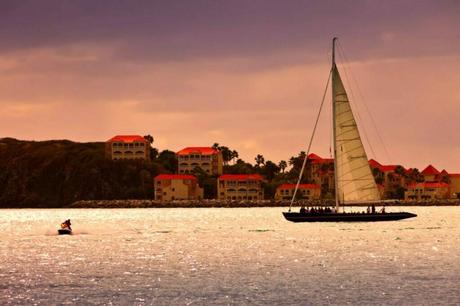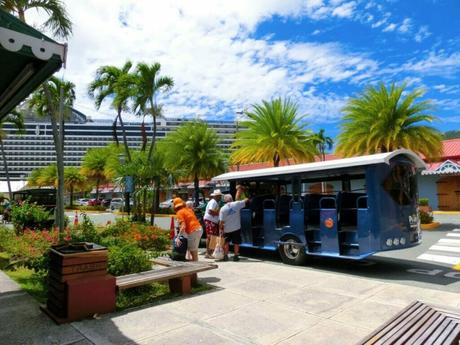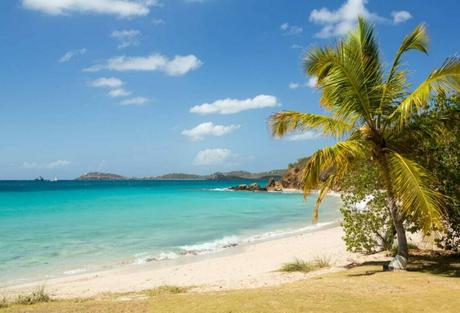Step into the captivating world of St. Thomas, where the golden beaches, azure waters, and vibrant island culture invite you to consider the possibility of making it your home. As your dedicated Expat Relocation Specialist, I’m here to be your trusted companion on this journey, offering valuable insights into the pros and cons of living in St. Thomas.
Whether you’re enticed by the island’s natural beauty, its rich culture, or the allure of an island lifestyle, this blog post will be your roadmap, helping you navigate the exciting path of living in St. Thomas.
In the upcoming sections, we’ll dive into the essential facets of life on this enchanting island. From its breathtaking landscapes and cultural tapestry to the practical aspects of housing, the cost of living, and employment prospects, we’ll provide a comprehensive overview of what it entails to make St. Thomas your home.
Location and GeographyBreathtaking landscapes, warm climateRisk of hurricanes, occasional natural events
Cultural and Historical SignificanceRich culture, U.S. territory, vibrant communitiesHigher cost of living, occasional power outages
St. Thomas: A US Territory with Distinct AdvantagesU.S. citizenship, stable currency, island charmHigher living costs, traffic congestion
St. Thomas WeatherTropical paradise, year-round warmth, beautiful beachesHurricane season, occasional heavy rainfall
Housing and CostsBeautiful homes, island living, proximity to beachesHigher housing costs, limited access to specialized items
Transportation and AccessibilityIsland-hopping opportunities, scenic drivesTraffic congestion, occasional ferry delays
By the end of this exploration, you’ll possess a well-rounded understanding of both the advantages and challenges, empowering you to make a well-informed decision about embarking on this extraordinary island adventure. So, let’s embark on this journey, where the magic of St. Thomas awaits, alongside its unique nuances and boundless opportunities.
Location and Geography of St. Thomas

Hey there! When it comes to living in St. Thomas, one of the first things you’ll want to wrap your head around is its location and geography. Understanding this aspect can help you grasp both the pros and cons of making this tropical paradise your new home.
St. Thomas is part of the United States Virgin Islands (USVI) in the Caribbean Sea. It’s nestled in the eastern part of the Caribbean, and its coordinates are approximately 18.34° N latitude and 64.92° W longitude. Now, what does this mean for you as a potential resident?
Pros of St. Thomas’ Location and Geography
Tropical Paradise: St. Thomas boasts a warm and tropical climate year-round. This means you’ll enjoy plenty of sunny days and warm temperatures, making it perfect for beach lovers and outdoor enthusiasts.
Beautiful Beaches: Being in the Caribbean, St. Thomas is home to some of the world’s most breathtaking beaches. Imagine having pristine sandy shores and crystal-clear waters as your backyard.
Easy Access: Thanks to its strategic location, St. Thomas provides easy access to other Caribbean destinations. You can embark on island-hopping adventures and explore nearby islands like St. John, St. Croix, and even the British Virgin Islands.
Cons of St. Thomas’ Location and Geography
Hurricane Season: St. Thomas, like many Caribbean locations, is prone to hurricanes during the hurricane season, which typically runs from June to November. While the island has emergency preparedness measures in place, it’s crucial to be aware of this natural phenomenon and take precautions.
Limited Land: The island’s geography means that available land for development is limited. As a result, housing can be relatively expensive, and space can be at a premium.
Isolation: While it’s fantastic to be surrounded by oceanic beauty, it also means that getting certain goods and services can take longer and may be more expensive due to the island’s remote location.
Understanding the location and geography of St. Thomas is just the beginning of your journey into the pros and cons of living in this tropical haven. Keep these factors in mind as we dive deeper into what it’s like to call St. Thomas home. Whether you’re seeking adventure, natural beauty, or a relaxed island lifestyle, St. Thomas has plenty to offer.
Embracing St. Thomas’ Cultural and Historical Significance

St. Thomas boasts a captivating blend of indigenous heritage, European colonial influence, and the contributions of African heritage. This unique fusion has left an indelible mark on the island’s traditions, cuisine, and vibrant community.
The cultural diversity on St. Thomas presents numerous advantages for those who choose to call it home. It offers an incredible opportunity to explore a wide array of culinary delights, from traditional West Indian dishes like “Johnny Cake” to the freshest seafood and exotic fruits. Moreover, the island’s cultural festivals, such as Carnival, provide a fantastic avenue to experience vibrant music, dance, and local artistry, immersing yourself in the dynamic and lively atmosphere.
However, it’s important to note that while the cultural diversity is undoubtedly a treasure, it can also pose certain challenges. Language barriers may occasionally arise, and newcomers might find it necessary to put in extra effort to fully integrate into the local community. Being patient, open-minded, and willing to embrace the island’s unique culture is key to fully appreciating all that St. Thomas has to offer.
To make the most of this cultural experience, consider engaging with local cultural organizations and taking language classes if necessary. Attend festivals, events, and community gatherings to connect with the local population and make new friends who can assist you in navigating this cultural tapestry. Exploring historic sites like Fort Christian and Blackbeard’s Castle can provide valuable insights into the island’s history and deepen your appreciation of its heritage.
Embracing St. Thomas’ cultural and historical significance is a rewarding journey that adds depth and vibrancy to life on the island. While it may come with occasional challenges, the rich heritage of St. Thomas is a cornerstone of its identity and a source of inspiration for those who choose to reside here.
St. Thomas: A US Territory with Distinct Advantages

Living on St. Thomas brings with it a unique advantage that sets it apart from many other Caribbean destinations—it’s a US territory. This status has several distinct advantages that can greatly impact your experience as an expat.
First and foremost, the currency used in St. Thomas is the US dollar. This simplifies financial transactions for US citizens, eliminating the need for currency exchange and making budgeting straightforward. It’s a convenience that many other Caribbean islands can’t offer.
Another significant advantage is that the US legal system applies in St. Thomas. This means that you’ll be navigating familiar legal processes, and your rights and protections are consistent with those in the mainland US. It can provide a sense of comfort and familiarity in your daily life.
St. Thomas also enjoys excellent air connectivity to major US cities, making travel to and from the island hassle-free. Whether you want to visit friends and family back home or explore other US destinations, you’ll have convenient access to flights.
One of the most notable perks is that as a US territory, St. Thomas doesn’t require US citizens to have a passport to visit or move to the island. This simplifies your relocation process and makes it more accessible.
However, it’s important to be aware of some challenges that come with this territory. While the US dollar is the currency, living costs on the island can be relatively high due to its remote location. Imported goods and services may come at a premium. Additionally, finding your ideal home on the island might require some patience, as there’s limited land for development, leading to higher housing costs and limited availability.
To make the most of the advantages, it’s a good idea to familiarize yourself with the local culture and community, even though the legal system is US-based. Understanding the unique blend of Caribbean and American influences will enrich your experience. Additionally, plan your budget carefully, considering the potential higher living costs. Embracing local produce and exploring the island’s markets can help you make the most of your resources.
St. Thomas being a US territory offers distinct advantages, particularly in terms of currency, legal familiarity, and travel ease. However, it’s essential to be prepared for the relatively higher cost of living and limited availability of land. By navigating these aspects wisely, you can enjoy all the benefits of island life in St. Thomas while mitigating the challenges.
St. Thomas Weather: A Paradise with a Hurricane Season

Imagine waking up to warm sunshine, gentle sea breezes, and blue skies almost every day of the year—that’s the kind of weather you can expect when living in St. Thomas, a Caribbean paradise. However, it’s important to be aware that this picturesque weather comes with a caveat—the hurricane season.
St. Thomas boasts a tropical climate with year-round warmth and sunshine. Average temperatures hover around 85°F (29°C), creating an ideal environment for outdoor activities and beach adventures. With approximately 300 sunny days annually, you’ll have ample opportunities to enjoy the island’s pristine beaches, whether it’s snorkeling, sailing, or simply lounging by the shore with a good book.
Now, let’s address the hurricane season, which spans from June to November. During this period, St. Thomas faces the potential threat of hurricanes. While the island has well-established emergency preparedness measures in place, it’s crucial for residents to stay vigilant and prepared. Hurricanes can bring heavy rains, strong winds, and temporary power outages. It’s wise to have a hurricane preparedness plan, including emergency supplies and an evacuation strategy if necessary.
To make the most of the favorable weather, embrace outdoor activities and water sports. Don’t forget to invest in high-quality sunscreen and swimwear to protect yourself from the sun’s rays. As for the hurricane season, view it as an opportunity to connect with your community. Neighbors often come together to prepare and support one another, fostering a sense of unity.
St. Thomas offers a dreamy climate for most of the year, making it an ideal destination for sun and sea lovers. However, it’s essential to be hurricane-ready during the season. By staying informed and prepared, you can fully enjoy the Caribbean sunshine while respecting the potential power of Mother Nature.
Finding Your Home: Housing and Costs in St. Thomas

When you decide to call St. Thomas home, one of your first considerations will be finding the perfect place to live. Let’s explore the housing scene and what it means for your budget.
The Pros of Living in St. Thomas
St. Thomas offers a variety of housing options to suit different preferences. You can choose from beachfront villas, cozy apartments, or charming homes in the hills. The island’s diverse real estate market means you have the opportunity to find a place that truly suits your lifestyle.
Another significant advantage is that property ownership follows the US system, making it straightforward for US citizens. You can own property with the same ease and legal protections as you would on the mainland. For those seeking a permanent home, this is a reassuring factor.
The Cons of Living in St. Thomas
Now, let’s address the cost of living in paradise. St. Thomas is renowned for its stunning beauty, but it comes with a price tag. The cost of housing can be relatively high, especially in prime locations like beachfront properties or homes with breathtaking views. Keep in mind that imported goods and services may also come at a premium due to the island’s remote location.
Renting can be an option, but even here, prices can be relatively steep. It’s essential to research thoroughly and budget accordingly. Additionally, consider the availability of housing. Due to geographical constraints, there’s limited land for development, which can result in higher housing costs and limited availability of your dream home.
Practical Tips
To navigate the housing market effectively, start by setting a clear budget. Understand your financial limits and explore various neighborhoods to find the right balance between cost and convenience.
Consider engaging with local real estate agents who have insights into the market and can guide you to suitable properties. Be patient and open to different housing types; you might find hidden gems that offer both affordability and charm.
Lastly, if you’re renting, ensure that your lease agreement is clear and comprehensive, detailing all terms and conditions to avoid any surprises down the road.
Navigating St. Thomas: Transportation and Accessibility

St. Thomas offers a well-developed road infrastructure, which is a significant advantage. The island’s roads connect different neighborhoods and attractions, allowing you to explore at your own pace. While the terrain can be hilly and winding, the roads are generally well-maintained, ensuring a smooth driving experience.
For those who don’t own a vehicle or prefer not to drive, there are reliable taxi services available throughout popular areas of the island. Additionally, St. Thomas has a public bus system, although it may not run on a strict schedule, and the routes can be limited compared to what you might be used to in larger cities.
However, it’s important to be aware of some challenges. St. Thomas doesn’t have an extensive public transportation system like major cities, so having your own vehicle, whether it’s a car or scooter, can greatly enhance your mobility and convenience.
Furthermore, if you plan to drive on the island, you’ll need to adapt to driving on the left side of the road, which is the standard practice in St. Thomas. This adjustment might take some time, especially if you’re coming from a country where driving on the right is the norm.
To make the most of the transportation options, consider renting a vehicle if you don’t plan to bring your own. This offers you the freedom to explore the island at your leisure and access more remote or less serviced areas. While driving, exercise caution, particularly on winding roads, and adhere to traffic rules and speed limits to ensure safety for yourself and others on the road.
For daily commuting or when you prefer not to drive, taxis are a convenient choice. Although fares can accumulate, it’s a worthwhile investment for your peace of mind, especially if you’re not comfortable with left-side driving.
Prioritizing Safety: Living Securely in St. Thomas

First and foremost, St. Thomas is generally considered a safe place to live. It’s a US territory, and the local authorities are committed to ensuring the safety of residents and visitors. You’ll find a visible police presence, and the island has a relatively low crime rate compared to many other Caribbean destinations.
Moreover, St. Thomas benefits from its close-knit community. The locals are friendly and often look out for each other, creating a sense of camaraderie that adds an extra layer of security.
While St. Thomas is relatively safe, like any place, it’s not entirely free from challenges. Petty theft, such as car break-ins or occasional burglaries, can occur, primarily in more tourist-heavy areas. It’s essential to take standard precautions like locking your doors and securing valuables, especially in rental cars.
Another consideration is the annual hurricane season. St. Thomas is prone to hurricanes, and while the island has robust preparedness measures in place, it’s crucial to be vigilant during this time and stay informed about weather updates.
To ensure your safety, practice common-sense measures. Lock your doors and windows, especially when you’re not at home. Avoid leaving valuables in plain sight in your vehicle, and park in well-lit areas.
During hurricane season, stay informed through local news sources and heed any evacuation orders or safety guidelines issued by authorities. It’s also wise to have an emergency kit prepared with essentials like water, non-perishable food, and important documents.
For added peace of mind, consider living in gated communities or secure apartment complexes. These often come with additional security features and 24/7 surveillance.
St. Thomas offers a safe and welcoming environment, but it’s essential to remain vigilant and practice standard safety precautions. By doing so, you can enjoy the island’s beauty and hospitality while living securely in this tropical paradise.
Employment Opportunities on the Island

Employment Pros in St. Thomas
St. Thomas, part of the U.S. Virgin Islands, offers a unique blend of Caribbean charm and American infrastructure, creating a vibrant job market. If you’re looking for opportunities in the tourism and hospitality sector, you’re in luck. The island’s thriving tourism industry constantly seeks skilled professionals, including hotel staff, chefs, tour guides, and more. With its stunning beaches, St. Thomas attracts visitors from around the world, ensuring a steady demand for these roles.
Moreover, if you possess skills in finance, technology, or healthcare, there are opportunities in these sectors as well. St. Thomas is home to offshore banking and finance companies, making it a hub for financial services. Additionally, the island’s healthcare system is expanding, offering positions for medical professionals.
Employment Cons in St. Thomas
While the job market in St. Thomas is promising, it’s essential to consider the cost of living. The island can be relatively expensive, especially when it comes to housing and groceries. Salaries, especially in the hospitality sector, might not always match the high living costs. It’s crucial to budget wisely and negotiate your salary accordingly.
Another factor to keep in mind is that work permits are required for non-U.S. citizens to work on the island. Navigating the application process can be time-consuming, so it’s advisable to start early and ensure all necessary documentation is in order.
Practical Tips
To make the most of your job search, research employers and industries on the island well in advance. Many jobs are often secured through networking, so reaching out to local contacts or expat communities can be beneficial.
Consider your living expenses when negotiating your salary. Housing, in particular, can be a significant part of your budget, so explore different housing options and neighborhoods to find the best fit for your lifestyle and budget.
Lastly, be prepared for the work permit application process. Ensure you have all the required documents and work closely with your potential employer to navigate the bureaucracy smoothly.
Cost of Living Realities in St. Thomas

St. Thomas, with its stunning beaches and vibrant culture, offers a lifestyle that many find enticing. A significant advantage is that it’s a U.S. territory, which means you’ll be using the U.S. dollar, and English is the primary language. For U.S. citizens, this familiarity can make the transition smoother.
One of the most appealing aspects is the absence of income tax. Yes, you read that correctly – there’s no state or local income tax in St. Thomas. This can have a substantial impact on your overall financial situation, leaving you with more disposable income to enjoy the island’s offerings.
However, paradise does come with its costs. The cost of living in St. Thomas can be notably higher than many mainland U.S. cities. Housing, in particular, can be a significant expense. Rental prices for apartments or houses can be steep, especially in popular tourist areas.
In addition to housing, everyday expenses like groceries and goods can also be more expensive. This is primarily due to the need for imports, as St. Thomas relies on shipments for many items, which can result in higher prices.
Utility costs, including electricity and water, might also be higher than what you’re used to. The tropical climate often necessitates more frequent use of air conditioning, impacting your monthly bills.
To navigate the cost of living effectively, it’s essential to create a detailed budget that considers all potential expenses before making the move. This will provide you with a clearer understanding of your financial situation and allow you to plan accordingly.
When it comes to housing, exploring various options and neighborhoods can be beneficial. Living slightly inland or in less touristy areas can often mean more affordable rent while still enjoying the island’s charms.
To save on groceries, consider local markets and seasonal produce. Embracing the local food culture can not only be cost-effective but also a delightful culinary experience.
Lastly, consider the absence of income tax when negotiating your salary. While the cost of living is higher, the lack of state or local income tax can offset some of these expenses.
Living in St. Thomas offers a unique blend of advantages and disadvantages when it comes to the cost of living. While certain expenses like housing and groceries can be higher, the absence of income tax and the island’s incredible lifestyle make it an appealing choice. With prudent budgeting and planning, you can relish this tropical paradise while managing your finances effectively.
Conclusion: Living in St. Thomas Pros and Cons

As we near the end of this journey exploring the pros and cons of living in St. Thomas, I want to leave you with a sense of clarity and confidence in your decision-making process. St. Thomas is undeniably a place of immense allure, offering a lifestyle that’s hard to find elsewhere. The lush landscapes, warm communities, and the fact that it’s a U.S. territory make it a remarkable choice for many.
However, it’s equally important to recognize the unique challenges that come with this island paradise, particularly the higher cost of living and the occasional impact of natural events like hurricanes. Our goal here has been to provide you with a balanced perspective, enabling you to weigh the advantages against the disadvantages and make a choice that aligns with your aspirations and circumstances.
Remember, every journey is an adventure, and living in St. Thomas can be an exhilarating one. Whether you decide to make this island your home or explore other possibilities, your dreams and happiness are what truly matter. As your Expat Relocation Specialist, I’m here to assist you in every step of your relocation journey, ensuring that your path is paved with information, guidance, and support. So, wherever life takes you, may it be filled with excitement and fulfillment.
FAQ

Is Saint Thomas a good place to live?
Saint Thomas offers a unique blend of advantages and challenges. It boasts stunning natural beauty, a rich cultural heritage, and the convenience of being a U.S. territory. However, the cost of living can be high, particularly in terms of housing and everyday expenses. It’s essential to consider your preferences and financial situation carefully before deciding if Saint Thomas is the right place for you.
Is it expensive to live in St. Thomas?
Living in St. Thomas can be relatively expensive, primarily due to the high cost of housing and imported goods. While the absence of income tax is a perk, it’s essential to budget carefully to manage expenses effectively. Exploring more affordable housing options and embracing local markets can help offset the overall cost of living.
Which Virgin island is the best to live on?
The choice of the best Virgin Island to live on depends on your preferences and priorities. Saint Thomas offers a vibrant lifestyle and the convenience of being a U.S. territory, but it can be costly. Saint John is known for its natural beauty and tranquility. Saint Croix offers a more laid-back atmosphere and is often considered more affordable. Each island has its unique charm, making it a matter of personal preference.

